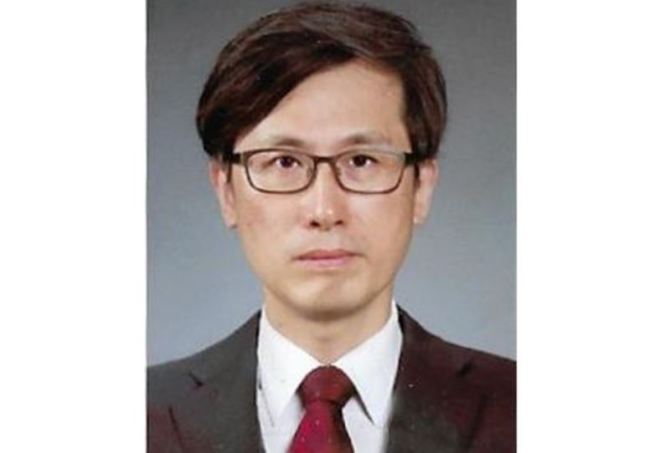[IP in Korea] Government role crucial in expanding creative public domain
By Bae Hyun-jungPublished : Aug. 12, 2018 - 15:03
The Korea Herald is publishing a series of interviews with experts in the intellectual property sector. This is the 22nd installment. -- Ed.
In an era of technological evolution, in which content is constantly integrated, disassembled and reinvented, the conventional exclusivity of copyright is under pressure as creators seek lower barriers to produce their work and realize innovation.
But a drastic expansion of the public domain could also infringe the rights of creators. That is why the Culture Ministry’s head of copyright says policymakers are required to play a balancing role in the initial stage.
“In the diversifying media environment nowadays, creative content is no longer subject to absolute protection, but rather are raw materials for the next step in innovation and creation,” Moon Young-ho, director general of the copyright bureau at the Ministry of Culture, Sports and Tourism, told The Korea Herald by email.
Over the past few decades, copyright protection has largely been a black-and-white system -- acknowledging the legal rights of the original creator and holding the violator responsible for unauthorized usage, according to Moon.
In an era of technological evolution, in which content is constantly integrated, disassembled and reinvented, the conventional exclusivity of copyright is under pressure as creators seek lower barriers to produce their work and realize innovation.
But a drastic expansion of the public domain could also infringe the rights of creators. That is why the Culture Ministry’s head of copyright says policymakers are required to play a balancing role in the initial stage.
“In the diversifying media environment nowadays, creative content is no longer subject to absolute protection, but rather are raw materials for the next step in innovation and creation,” Moon Young-ho, director general of the copyright bureau at the Ministry of Culture, Sports and Tourism, told The Korea Herald by email.
Over the past few decades, copyright protection has largely been a black-and-white system -- acknowledging the legal rights of the original creator and holding the violator responsible for unauthorized usage, according to Moon.

“That policy approach was, of course, necessary in the past when piracy was the key issue in creative industries,” Moon said.
“But what really matters now and henceforth for policymakers is to define the boundary of protected work and public domain, so that creators and industries may use, reprocess and foster creative content without worrying about infringement agendas.”
He cited a lack of incentives for those creating “free access” content, which leads to lackluster participation. This calls for a more active engagement on the part of the government to create a favorable environment, Moon said, such as through campaigns and educations.
The public domain consists of all creative works to which no exclusive intellectual property rights are attached, mostly due to the expiration or waiver of rights.
An example of such a platform here is Shared Yard, or Gong-u-madang in Korean, a website seeking to compile and share IP-free literary or art works.
The ministry’s copyright bureau, which administers the country’s copyright policies, was previously affiliated with the cultural content office but was founded as an independent bureau in August 2017. The reshuffle came amid the government’s efforts to expand support for the 2018 PyeongChang Winter Olympic Games and to establish a long-term vision for Korea’s creative industries.
Over the past year, the bureau’s key operations included an increase in license fees for music creators and a massive crackdown on illicit overseas server-based websites.
Earlier this year, a government task force tracked down and arrested the anonymous operator of a pirate website titled “bamtoki” or “night rabbit,” which had been stealing online cartoons from popular paid platforms.
In June, the ministry approved a revised set of rules concerning the license fees for music creators, increasing their share of revenue from music streaming services from 60 percent to 65 percent.
The move, while well-received by individual musicians, also triggered a backlash from music service providers. A number of industry observers, especially those involved in multimedia services, also pointed out that a mere increase of fees will do little to fundamentally promote the rights of creators.
“Despite the pros and cons, it is crucial from a policy perspective that the compensation system for copyright owners (creating public domain content) needs to be improved in one way or another,” Moon said.
While keeping up its moves to better protect the exclusive rights of creators, the government’s core mission now is to expand the public domain in order to encourage the creation, distribution and use of content, the official added.
The ministry’s ongoing efforts include free consultation and education on open source software -- computer software for which the source code is released for free user access.
By Bae Hyun-jung (tellme@heraldcorp.com)









![[Kim Seong-kon] Democracy and the future of South Korea](http://res.heraldm.com/phpwas/restmb_idxmake.php?idx=644&simg=/content/image/2024/04/16/20240416050802_0.jpg&u=)







![[KH Explains] Hyundai's full hybrid edge to pay off amid slow transition to pure EVs](http://res.heraldm.com/phpwas/restmb_idxmake.php?idx=652&simg=/content/image/2024/04/18/20240418050645_0.jpg&u=20240418181020)

![[Today’s K-pop] Zico drops snippet of collaboration with Jennie](http://res.heraldm.com/phpwas/restmb_idxmake.php?idx=642&simg=/content/image/2024/04/18/20240418050702_0.jpg&u=)